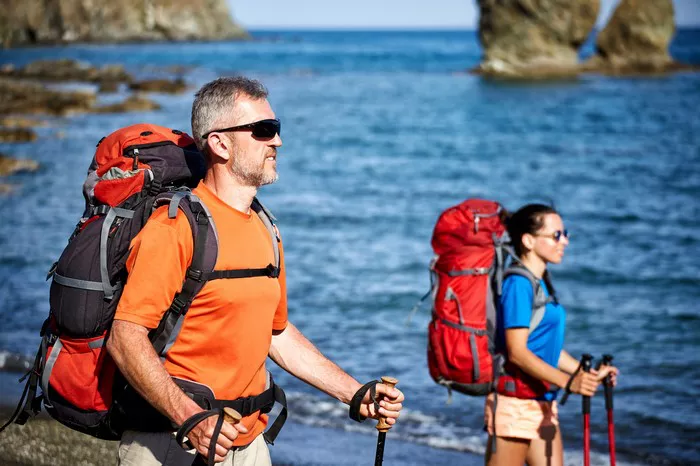A camper can be your ticket to adventure, offering the freedom to explore while carrying all the comforts of home. To make your camping trips enjoyable and stress-free, it’s important to prepare properly. Here’s a detailed guide on what you need for a camper, organized into essential categories.
Basic Essentials for Your Camper
When setting up your camper, certain basics are necessary to ensure functionality and safety.
Power Source: Most campers rely on electricity for lighting, appliances, and other systems. Carry an external power source such as a generator or solar panels. A good battery bank is also essential to store energy when you’re off-grid.
Water Supply: Install a freshwater tank or bring portable water containers. A reliable water pump ensures smooth water flow for drinking, cooking, and cleaning.
Propane for Cooking and Heating: Propane tanks are commonly used to fuel stoves, heaters, and some refrigerators. Always check your tank’s level before each trip.
Basic Tools and Maintenance Kit: A tool kit with wrenches, screwdrivers, duct tape, and spare fuses is crucial for emergency repairs. Include a tire repair kit and an air pump.
Comfortable Sleeping Arrangements
Getting a good night’s sleep in your camper requires the right setup.
Bedding: Invest in a comfortable mattress or mattress topper. Bring warm sleeping bags or blankets, especially if camping in colder areas.
Pillows: Don’t overlook pillows. Choose ones that suit your sleeping preferences for optimal comfort.
Curtains or Window Covers: For privacy and better sleep, install curtains or blackout shades on your camper windows.
Cooking and Dining Essentials
Preparing meals in a camper requires specific gear to maximize space and convenience.
Portable Stove or Grill: Choose a lightweight, compact stove or grill that fits your camper’s kitchen. Many campers already come equipped with a built-in stove.
Cookware and Utensils: Pack essential pots, pans, spatulas, knives, and tongs. Look for multipurpose items to save space.
Plates, Cups, and Cutlery: Use reusable or collapsible tableware made of durable materials like silicone or stainless steel.
Food Storage: A mini refrigerator or cooler is essential for keeping perishable items fresh. Bring airtight containers to store dry goods.
Cleaning Supplies: Dish soap, sponges, microfiber towels, and a collapsible dish rack make cleaning up easy and efficient.
Personal Hygiene Supplies
Staying clean while camping is critical for comfort and health.
Bathroom Setup: If your camper lacks a built-in bathroom, portable toilets are a great alternative. Keep biodegradable waste bags for proper disposal.
Shower Supplies: Some campers have built-in showers, but a solar shower bag is a good backup for off-grid trips. Bring shampoo, soap, and quick-drying towels.
Toiletries: Pack a toiletry kit with essentials like toothbrushes, toothpaste, razors, and deodorant.
First Aid Kit: Include bandages, antiseptic wipes, pain relievers, and any prescription medications.
Storage Solutions
Space is limited in a camper, so effective storage is key.
Storage Bins and Organizers: Use stackable bins to maximize vertical space. Drawer organizers keep smaller items tidy.
Hanging Storage: Hooks, nets, and hanging shelves utilize unused wall and ceiling space.
Under-Bed Storage: Use the space under your camper bed for larger items like clothes, blankets, or non-perishable food.
Outdoor Gear
Camping isn’t just about staying inside the camper. Bring outdoor equipment to enjoy nature.
Camping Chairs and Table: Lightweight, foldable chairs and tables are perfect for eating and relaxing outside.
Awning or Shade: An awning or pop-up canopy provides shade and protection from rain.
Outdoor Cooking Gear: If you plan to cook outdoors, bring a portable grill or campfire cooking kit.
Lighting: Lanterns, flashlights, and string lights keep your outdoor space well-lit at night.
Clothing and Weather Protection
Pack clothes that are suitable for your destination and weather conditions.
Layered Clothing: Layers help you adjust to temperature changes. Include thermal wear for cold nights.
Waterproof Gear: Bring rain jackets, waterproof boots, and ponchos to stay dry.
Footwear: Comfortable, sturdy shoes are essential for walking and hiking. Include sandals for relaxing around the campsite.
Entertainment and Activities
Add some fun to your trip with these items.
Books and Games: Bring a selection of books, board games, or card games for downtime.
Outdoor Activities Gear: Pack gear for your favorite activities, such as fishing rods, bicycles, or kayaks.
Electronics: Cameras, drones, and portable speakers can enhance your camping experience. Remember to bring chargers and power banks.
Safety and Navigation Tools
Safety should always be a priority when camping.
Maps and GPS: Don’t rely solely on digital maps. Carry a physical map of the area as a backup.
Emergency Communication: A two-way radio or satellite phone is crucial for remote locations without cell service.
Fire Safety: Keep a fire extinguisher and a bucket of sand or water nearby. Always follow fire safety rules when using campfires.
Roadside Emergency Kit: This kit should include jumper cables, road flares, and reflective vests.
Extras for Off-Grid Adventures
If you plan to camp off the grid, additional gear is necessary.
Solar Panels: Solar panels are an eco-friendly way to power your camper in remote areas.
Composting Toilet: For sustainable waste management, consider a portable composting toilet.
Portable Water Filter: A water filter or purification tablets ensure you always have access to safe drinking water.
Final Tips for Camper Setup
Test Your Setup: Before heading out, test all systems in your camper, including plumbing, electricity, and appliances.
Pack Smart: Avoid overpacking by focusing on multipurpose items and compact gear.
Stay Organized: Keep frequently used items accessible and maintain a consistent packing order.
Plan Ahead: Research your destination and its amenities. Understand the local weather, terrain, and rules.
By gathering the right gear and planning thoughtfully, your camper can become a comfortable and reliable home on wheels. Whether you’re embarking on a weekend getaway or a long-term adventure, having these essentials will help you make the most of your journey.
Related topics:
- Is K2 Base Camp Trek Safe?
- When Do 2024 Campers Come Out? A Comprehensive Guide
- Best Canvas Tent 2024: Top Picks for Outdoor Adventures

